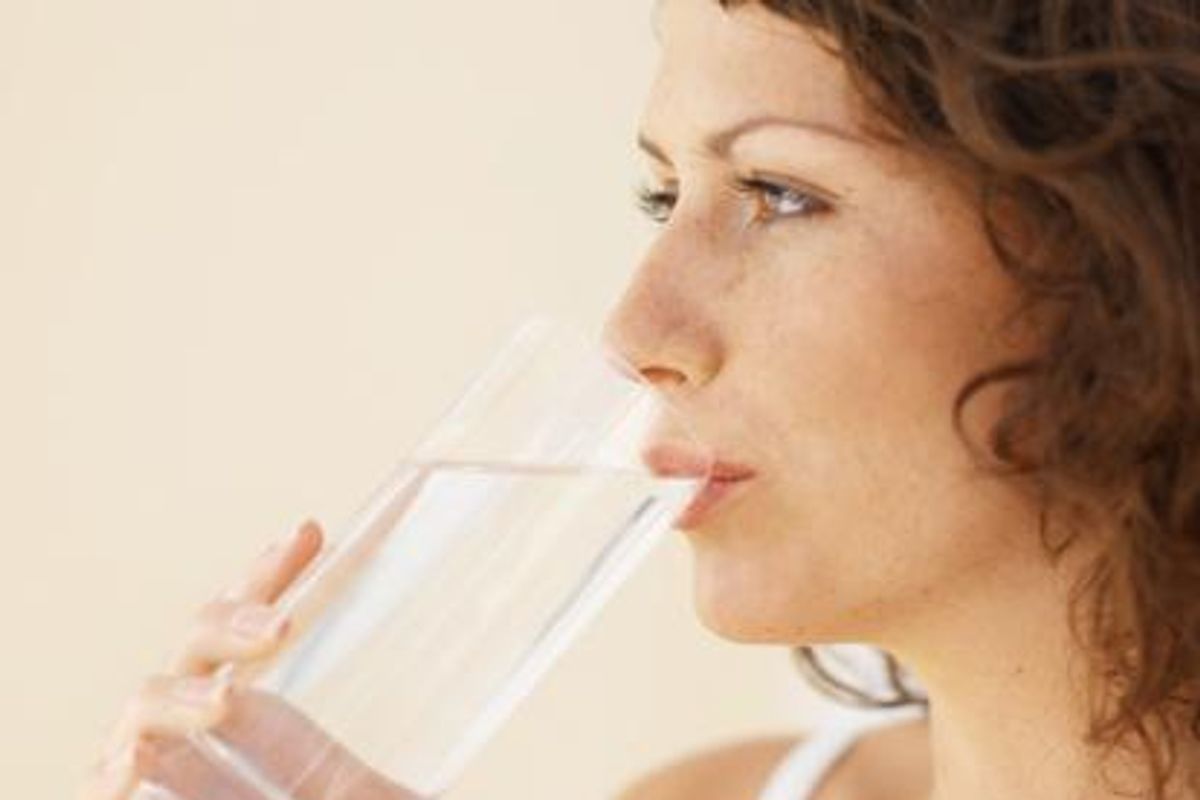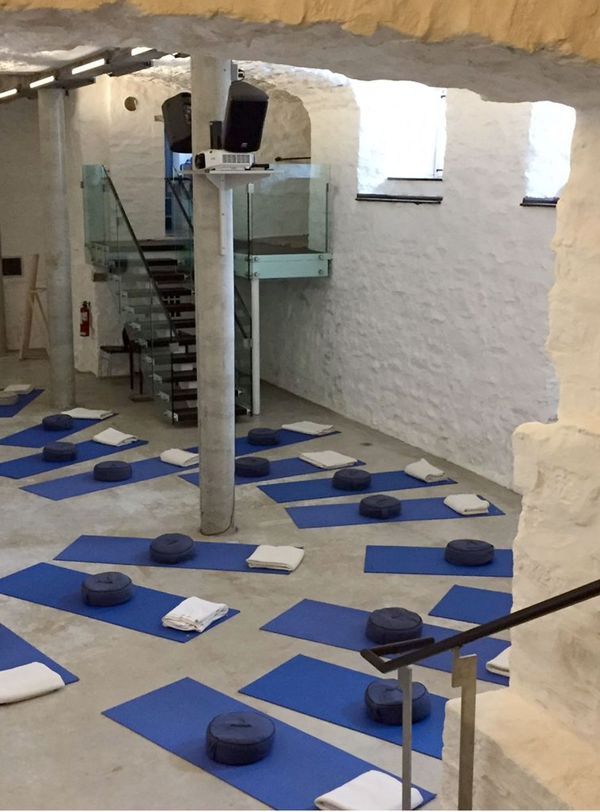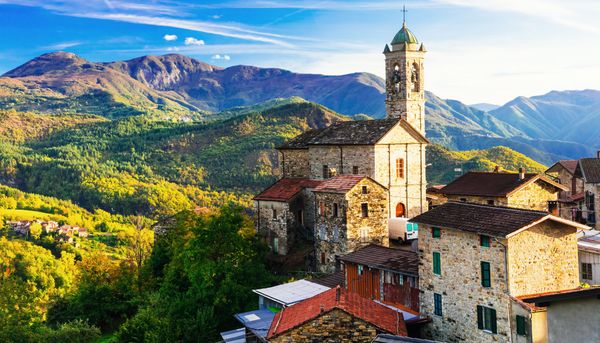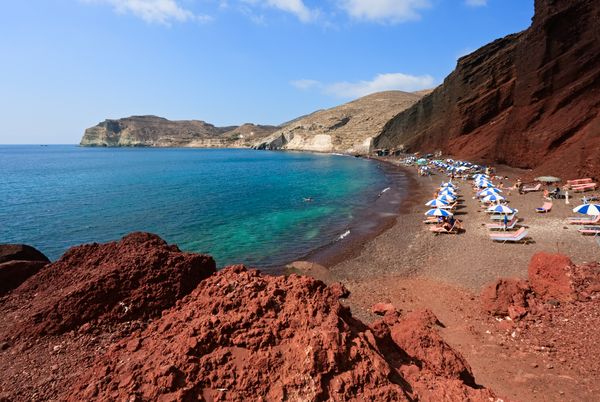When women travel, we often toss our scheduled lives to the wind, losing our daily routines, and, with them, our common sense. Crowds, weather fronts, delays, and anxiety can all be challenging, but some things are still in our control, like what we choose to eat and drink.
The Mayo Clinic advises women to drink 9 cups of water or juice a day (including juice in fruits). It's important to do this even while traveling.
If you are traveling within the United States, consider drinking bottled water the first day. Why be so careful? The mineral content for water differs from area to area, even within the United States, so you might not be used to the taste of the new water. Drink some tap water the second day and see how you feel. If you feel fine, drink what you wish from the tap after that.
If you're going overseas to a developed area, drink bottled water for the first two or three days. Bottled water overseas often has more minerals than U.S. water, so it will taste different and might upset your stomach.
If you're traveling to less developed areas, use only bottled water for the whole trip. Brush your teeth and clean your ears with bottled water, in addition to keeping your mouth closed in the shower and wiping tap water from your lips. Don't be fooled by the beauty of a deluxe hotel; foreign water can harbor parasites or bacteria that can cause you to become sick. Remember Charlotte in the shower in Mexico in Sex and the City?
Bottled water is expensive. Save money by shopping in the local supermarket. Cheaper still, you can buy iodine pills and purify tap water in your room. There are many water purification systems, but pills are small and easiest to pack. Ask for a hotel ice bucket, fill it with tap water, drop in the suggested number of pills and wait the prescribed time before drinking. (Iodine-laced water tastes unpleasant, so bring some flavorings.)
Eating healthy food may be a more difficult challenge on the road. Most of us indulge while traveling, and we often begin at the airport or on the highway. Whether traveling by plane, car, train or bus, you may want to start by packing some healthy food from home. Bring your own sandwich, some trail mix, or cereal and dried fruit.
If you're flying, avoid anything with liquid or a creamy consistency, like yogurt, because it will be confiscated by the Transportation Security Administration staff. Additionally, you may want to avoid salty foods that will make you thirsty, especially if you're flying or will have limited access to water. You can't carry water or other beverages past airport security, but you can take an empty water bottle and fill it with safe water after you pass through security.
Cabin air in an airplane is dry, so follow the rule of drinking 8 ounces of water for each hour of flying (plain water—not alcohol, coffee or tea). Ask the airline attendants to fill your water bottle frequently. If you're in doubt about the water supply, request carbonated water to be safer. Yes, you may have to ask others to wake up while you go to the bathroom, but you will feel better. If you get a small bottle of free wine, save it for hotel cocktails later in the trip.
Eat the airplane meal if offered, but don't add salt to it, and toss the salted crackers. A better option is to bring your own meal or buy something in the airport, if you can find healthy options there. Just be sure not to carry liquids through security checks.
If you're not certain about the water supply on the airplane, particularly if the airline is based in a developing country, avoid brushing your teeth in the airplane bathroom, unless you use bottled water.
However or wherever you're traveling, the key is to stay hydrated. If you suffer from travel constipation, as many women do, nibble some dried fruit while you travel.
Once you arrive, you'll need to find something to eat. If you're in a developing nation or anywhere you feel uncertain about sanitation, stick to cooked foods, like well-cooked meats, pasteurized milk products, cooked vegetables, prepared grains, cooked sweets and boiled or bottled beverages. Items like raw salads or fruits may have been washed in contaminated water, so it's best to avoid them.
In developing countries, also avoid shellfish, ice cream, unpasteurized honey and soft cheeses, unpeeled fruit and vegetables and raw meats. Be on the lookout for (and avoid) ice cubes, garnishes of unpeeled fruit on a drink, sliced raw onions on a cooked burger and fresh herbs sprinkled on cooked food or mixed with salsa.
Buffets, especially ones outdoors, are breeding grounds for illnesses that can ruin a vacation. Eat at an indoor restaurant when you're in less sanitary areas and enjoy the outdoors with a drink that is properly capped or boiled.
If you have food allergies or gluten intolerance, you can print out allergy and gluten warnings in many languages from services on the Internet before you travel.
Despite the potential hazards, try to enjoy your trip! Use common sense and remember that one careless meal or slurp can cost you a vacation day. Should you get sick, seek medical help immediately so you can get back to the fun.
Phylis Stoller is the founder of The Women's Travel Group at www.thewomenstravelgroup.com, an award-winning tour operator for women. She is a recognized expert in travel needs for women, whether for pleasure or business. Many tips are published on the company blog: www.theWomensTravelGroup.Wordpress.com.







